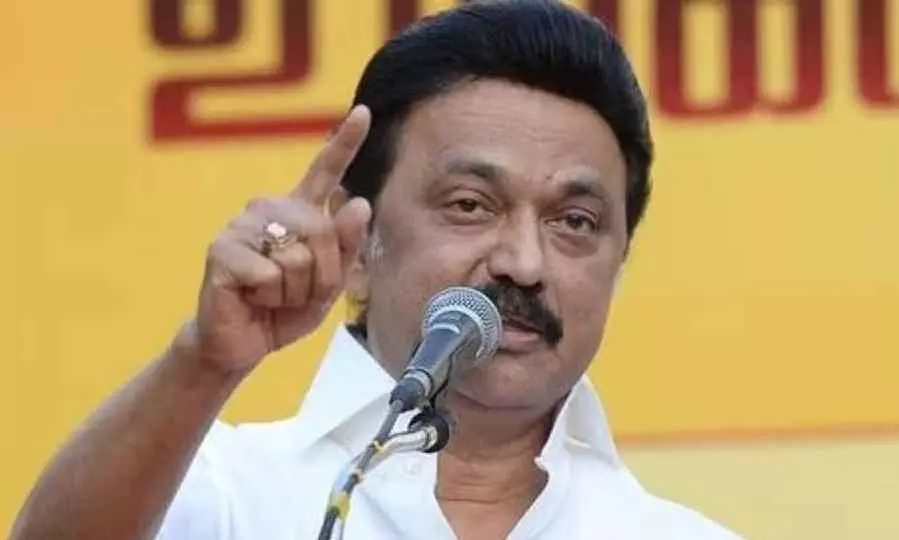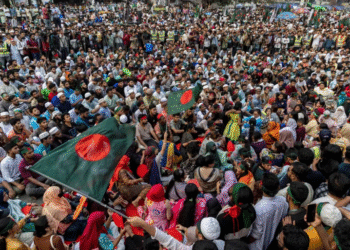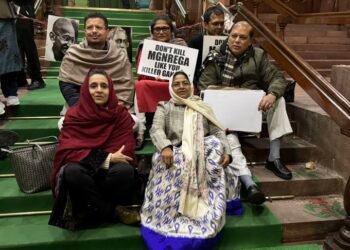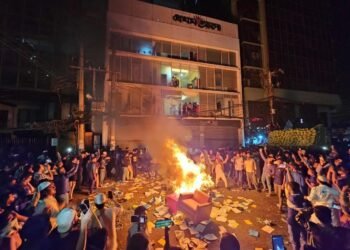Amidst a tense standoff with the central government and the Governor, Tamil Nadu has established a committee to explore ways to enhance state autonomy, including reclaiming subjects from the concurrent list and assessing existing laws, with an eye on protecting state rights.
BY PC Bureau
April 15, 2025: Tamil Nadu Chief Minister MK Stalin has established a high-level committee, led by retired Supreme Court Chief Justice Kurien Joseph, to recommend measures for enhancing state autonomy and improving the working relationship between the state and central governments. The move comes amid escalating tensions between the ruling DMK and the BJP-led central government on several key issues, including education and gubernatorial powers.
The committee is tasked with proposing strategies to reclaim state subjects currently on the concurrent list, effectively returning areas of governance to the exclusive control of state governments. It will also assess and evaluate existing laws, ensuring they do not compromise the integrity of the Indian union. Former bureaucrats Ashok Shetty and Mu Nagarajan will serve as members. The committee is expected to submit an interim report by January 2026 and a final report by 2028.
Chief Minister Stalin, addressing the state Assembly, emphasized that the committee’s objective is to safeguard the rights of all states, with a particular focus on Tamil Nadu.
A historic step by Hon’ble CM Thalaivar @mkstalin in upholding State autonomy! A high-level committee led by former SC judge Kurian Joseph is set up to examine Union-State relations to ensure state autonomy. Interim report is expected by Jan 2026 and final comprehensive report in… pic.twitter.com/gwbYRSKgmf
— CH.Sekar (சி.எச்.சேகர்) (@iamchsekar) April 15, 2025
READ: Tibetans Activists Link Monk’s Death in Vietnam to Chinese Repression, Protest in Delhi
Context of Centre-State Conflicts:
The formation of this committee is particularly significant given the ongoing disputes between the Tamil Nadu government and the central government, as well as Governor RN Ravi. The Supreme Court recently criticized Governor Ravi’s “arbitrary” and “illegal” delay in approving 10 state bills, some of which had been pending for five years. These bills, now enacted into law, aim to reduce the Governor’s authority in appointing Vice Chancellors of state-run universities.
The state government’s push to exempt itself from the National Eligibility cum Entrance Test (NEET), the centrally-administered medical entrance exam, has also fueled tensions. President Droupadi Murmu recently rejected a bill passed by the Tamil Nadu Assembly seeking to allow the state to use Class XII marks for medical admissions. Stalin vowed to challenge this decision legally.
READ: Harvard Defies Trump’s Dictate, Faces $2.26 b Funding Cut
Education Policy and Language Row:
Another major point of contention is the three-language formula in the National Education Policy (NEP). Tamil Nadu opposes the mandate for students to learn a third language (in addition to their mother tongue and English), arguing that its existing two-language policy has served the state well. The DMK has accused Union Education Minister Dharmendra Pradhan of attempting to “blackmail” the state by threatening to withhold education funds, a claim the BJP has denied.
The BJP, in turn, has accused the DMK of backtracking on its commitment to fully implement the NEP and clarified that the policy does not force students to study Hindi.
READ: Hopes Dashed: Meitei Pilgrims Turn Back Amid Protests
Political Implications Ahead of Elections:
These disputes are unfolding against the backdrop of upcoming state Assembly elections in Tamil Nadu, where the BJP has historically struggled to gain a foothold. The party has recently re-allied with the AIADMK, the state’s main opposition. The DMK also expresses concern over a proposed delimitation exercise, fearing it could reduce its representation in Parliament.
The formation of this committee signals Tamil Nadu’s determination to assert its autonomy and protect its rights in the face of perceived central government encroachment.











